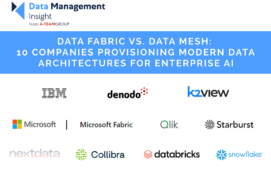The MiFID Joint Working Group last month issued a discussion paper to look at the impact of the EU’s upcoming Markets in Financial Instruments Directive on reference data. The paper – The Implications for Reference Data under the Markets in Financial Instrument Directive – suggests that MiFID may have significant impact on several areas of reference data, including the identification of instruments, of investment firms (and all counterparties), and of trading venues.
In the paper, JWG’s Reference Data Subject Group makes a number of recommendations for uses of reference data as applicable to a various aspects of the MiFID regulation as it now stands. Specifically, the RDSG proposes: the adoption of the ISO 10383 Market Identification Code (MIC) to identify place of listing (POL), place of trade (POT), and place of quote (POQ) for both instrument and venue identification; the extension of ISO 10383 MIC to cover all multilateral trading facilities and regulated markets; the use of the International Business Entity Identifier (IBEI) to identify Systematic Internalizers pending certain clarifications and feedback from trade groups; use of appropriate instrument codes to identify the instrument, where necessary in conjunction with POL and POT/POQ; the use of ISO 10962 Classification of Financial Instrument (CFI) codes for the classification of instruments where there is uncertainty regarding instrument coding or precise type; and pressing ahead with the development and adoption of the ISO 16372 IBEI standard, including (if necessary) an interim BEI solution.
Despite this comprehensive set of proposals, there remains some divergence of opinion over how best to identify market participants, especially when they act as different functions within the MiFID framework. This discussion, which encompasses the possible extension of the MIC code to accommodate these MiFID requirements, or the use of the as-yet unready IBEI code, will be one of several key threads examined in the inaugural issue of our forthcoming sister publication, MiFID Monitor, which is launched at next month’s TradeTech MiFID show in London. (Go to www.mifidmonitor.com to sign up for your free trial.)
Subscribe to our newsletter




